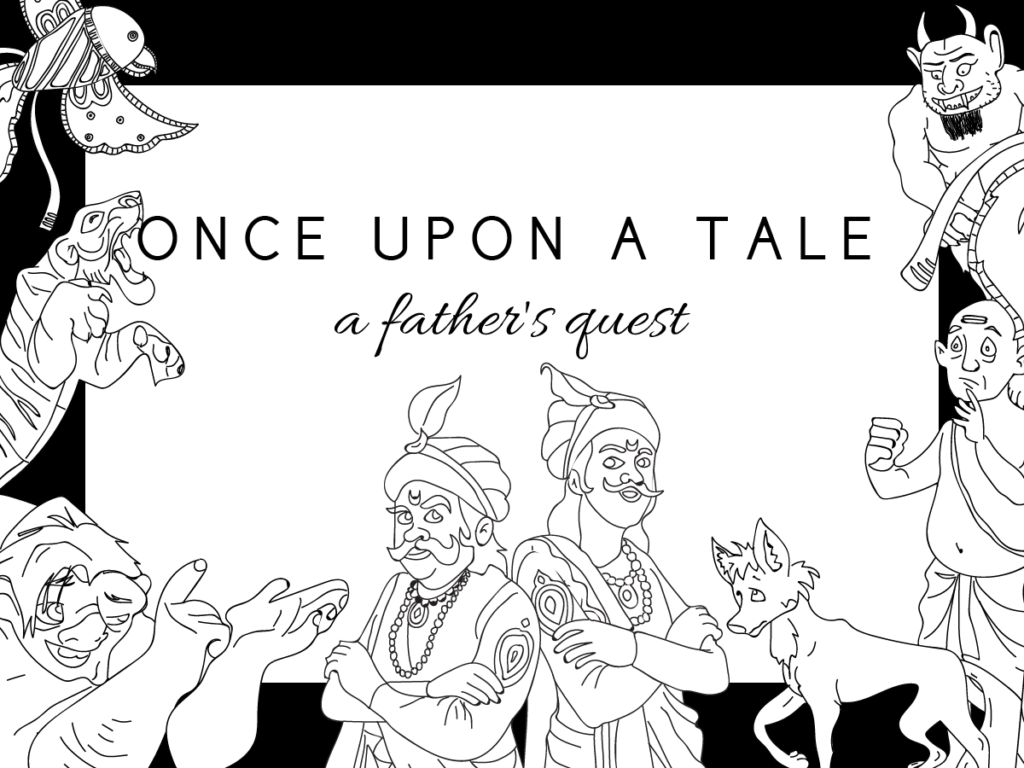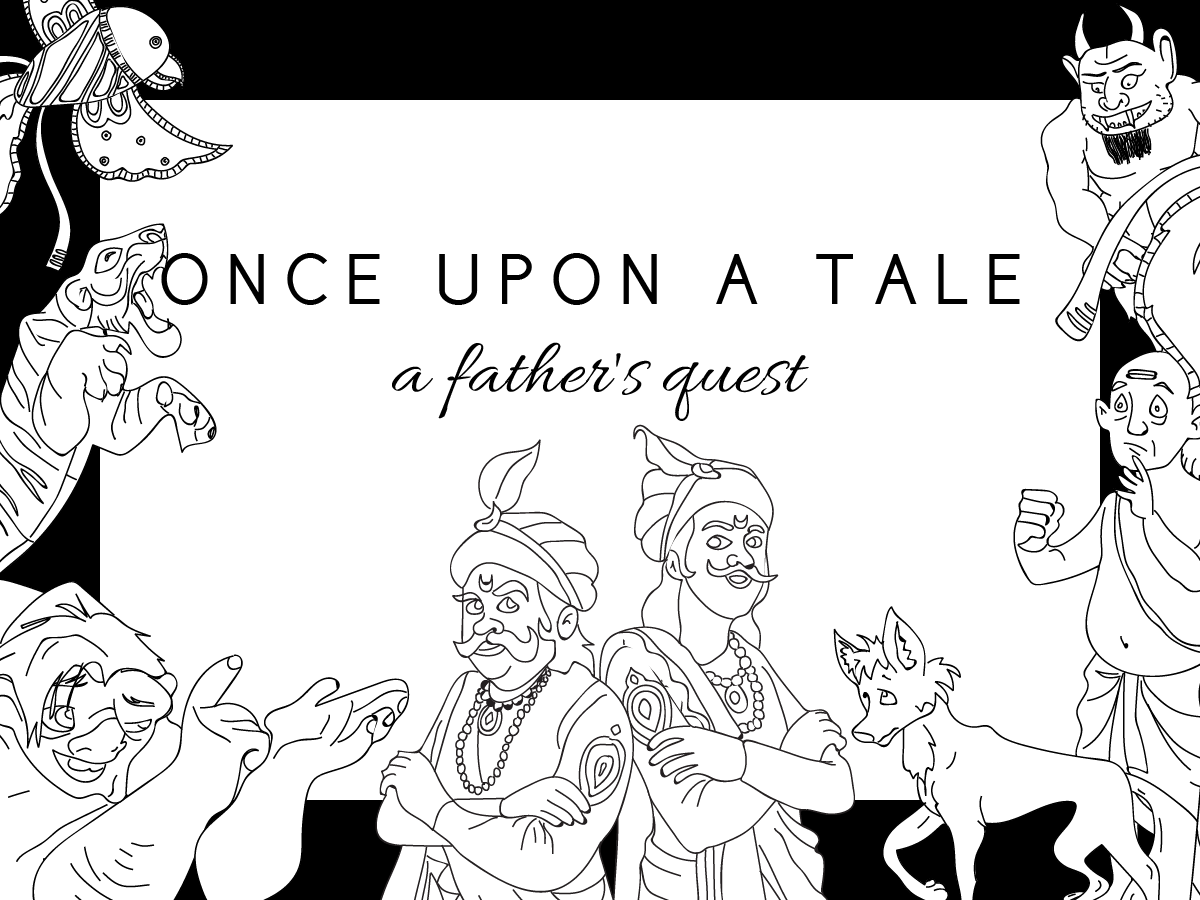
Not many years ago, Birju Singh resided in a small village called Tekdigarh. It was among a pocket of villages, situated on a plane circled by wooded hills. The nearest city was a thousand miles away, and could only be reached by crossing the mountains and nestled valleys. Talk about the industrial towns was like a fantasy; few dared to even dream about venturing there. They perceived them as some faraway, foreign lands.
In stark contrast lied these lowly settlements. Once an abode of greenery and a haven for farmers, the region soon became desolate and barren due to the never-ending drought. Wells ran dry, and the inhabitants had to travel for hours to get clean water. On his small cultivable land, you could see Birju bent over the field under the scorching heat. He worked his fingers to the bone — the hardened skin of his hands, the sweat continually dripping from his brow, and the fatigue he felt were testaments in themselves. The lines and creases on his face had begun to show more prominently.
Admirably, he did not complain even one bit for he had to work hard to provide for his family who he loved very dearly. He was content in the companionship of his wife, Seema and the adoration of his children — three sons and two daughters. His eldest son, Shyam had even started toiling with him in the fields, and he was grateful for the helping hand.
However, a dreadful shadow was lurking around the corner of their dilapidated hut. Birju had heard whispers about a bunch of beings who went from village to village, collected the youngest child in some homes and took them to some wretched, unknown place. If someone refused, they would destroy the entire family as punishment. They were presumed to come from the city as they always arrived in vehicles seldom seen in the villages. The belief was that some demonic spirits possessed them, giving them frightening powers. Nobody spoke aloud of the horrors they subjected to the children; each was left to his harrowing imagination.
The day, which everyone in Tekdigarh had been silently and secretly dreading, ultimately arrived. One night, there came the rare sound of tires revving against the unpaved, pebble-strewn road. Amidst the dust billowing all around, an open jeep emerged seconds later with half a dozen silhouettes outlined by the woodfires lit outside houses. Terror gripped the community; everyone rushed inside their shelters, scrambling to get away from the feared mob.
Birju stood against the broken door of the hut with bated breath, his hand clutching his thumping heart. He glanced at the face of his little boy, Sumer looking up at him, his innocent eyes full of wonder. He desperately hoped their family’s luck would work, and they would be left unscathed. He met his wife’s scrutinising eyes, and a clear wave of understanding passed between them. The thought of parting with their beloved son tormented them, but they knew what was to be done to keep the rest of the family safe.
A sudden rapid knock made the door vibrate. A booming voice resounded within the four walls, “Give us your youngest child, or perish.” Birju cried out in anguish, and his wife passed out cold right in front of him. He picked up the terrified Sumer in his arms, who naturally clutched his father tightly. Birju felt his chest tighten in agony, and he opened the door with trembling fingers. It was a moonless night, and the flames had almost died out, embers glowing in its wake. He could barely make out the bulky figures draped in hooded cloaks, each carrying what looked like a long spear in their right hand. The air was deathly still, and they stood there in absolute silence. With tears streaming down his face, Birju put down Sumer outside the house and shut the door. The last thing Birju could hear were the sounds of his son crying out to him, screaming and wailing, before all went quiet.
After that night, it looked like life itself went out of Birju. Guilt and hopelessness seemed to wash over him. He was burdened with sorrow and remained disinterested in any work. His sons had to take up the responsibility of the household. He sat idle for hours on end, staring at the horizon, calling out to little Sumer in his thoughts. Their family received a lot of condolences, but he rarely spoke to anyone.
Many years passed before a sudden, fierce determination took over Birju. Perhaps it was the gossip spewing about him or the renewed spirit of taking some action that drove him to search for his long-lost son. He left his house with a sack of essentials and embarked on a long journey to the city. He travelled in the sweltering heat from one village to another, from one valley to the next, to reach the town. He didn’t know what lay there, or where he would find his son or if he was even alive, but he trudged on.
Soon after, he reached the outskirts of the city. Cemented roads greeted him on which a few vehicles were quickly passing by. Just as he was about to collapse due to exhaustion, a car stopped beside him. A man sitting in the driving seat rolled down his window and proclaimed in a calm yet commanding voice, “I know who you are, and I know where your son is. I can take you to him.”
Birju looked at the man with suppressed yearning. He wondered how this strange man knew he was looking for his son. He believed, as did everyone in the village, that city folk were not to be trusted. But he realised he had no plan; this was his best shot. He climbed into the back of the car and sat atop the soft leathery seat.
“Where is he?” Birju’s voice trembled. The emotion in his voice startled the stranger, and he looked back with concern, but he quickly regained his composure.
“All of your questions will be answered. Except for the ones which you’ll have to answer yourself.”
With this vague comment, Birju got utterly confused. He sat back and glanced at the rolling expanse being progressively dotted with more concrete structures. Soon, he entered the heart of the town. He could see large buildings that seemed to touch the sky, fancy shops selling every kind of thing imaginable, and eateries that spread beautiful aromas. Cars and buses swiftly moved past him, and several people bustled around. He wished he could take it all in, but all he could think about was meeting his son.
The car took a smooth turn, and they entered a luxurious neighbourhood. The streets were lined with majestic bungalows, each adorned with a front garden as well as a backyard. They stopped across a school where several children were emerging out of the gate. Engaged in playful banter, they all happily made their way home. Birju was perplexed, but the stranger motioned for him look closely.
Birju’s eyes welled up. He could see his boy, his Sumer! Sumer had visibly grown up. He was almost unrecognisable, garbed in the smart school uniform with his shining black hair swept back. But his charming smile was exactly how Birju remembered. He almost ran to hold him in his arms once more, to feel his soft skin against his own.
Before he could move or say something, the stranger turned to him.
“I can understand your emotions. Your son was taken away from you at a young age, and all you want to do is return with him. I know this because I was one of the people that night, dressed in black robes, who took your son.”
He paused for a moment, gauging in the anger that erupted in Birju’s eyes and his face contorted in a fit of rage. “You’re no less than a cruel beast. How dare you do…”
“We are a group of people who want nothing more than to help children break out of the chain of poverty that constricts them, that more often than not leads to their death.” The stranger continued, drowning out Birju’s faltering voice. “We bring the kids to the city, give them everything that a parent would want for their child — education, healthcare, finest food and clothes, friends and a loving family. They are not left wanting in anything they desire. We know our methods are wrong — against ethics and even the law. We soon realised we had no other option; the power of fear and terror subdues everything that lies in its path.”
“Most of the village people soon get on with their lives, leaving it to God’s will and cursing their bad luck. No one dared to question us. But your love and compassion, courage and determination to take this gruelling journey caught our eye. So now, I leave it up to you to decide. You can take your son back to your village, or you can leave him here to do wonders in the world when he grows up.”
Birju held his throbbing head in his hands, his eyes full of tears. He cursed under his breath. Why was he hesitating now? Wasn’t all he wanted was to find his son, and take him back to their house so that everything would be just as it was before? He looked at Sumer who playfully made his way over to one of the bungalows on the street. He seemed so untroubled and delighted. A middle-aged woman greeted him, around whose waist he wrapped his arms in an embrace.
He knew that if he were to take him back to the village, he would be reduced to living a life of hardship. If he survived the disease outbreaks and hunger and thirst, nothing awaited him except the job of a farmer. Birju wouldn’t be able to offer his son anything he had had the fortune to receive in his new home. In his selfishness, would it be just to strip his son away of all riches and comfort?
He took a deep breath, took one long look at his son and silently stepped out of the car. He went back along the street, turned around the corner, and his receding footsteps soon disappeared into thin air.
Thus, Birju Singh went back to his village. Their condition remained as it was, but he returned with new vigour, for in his son’s happiness lied his. Painful memories plagued him, but as a reward for his courage and sacrifice, it seemed as if the universe aligned to make him forgive and forget. He went on and lived a long, satisfying life.
Written by Tulika Somani for MTTN
Edited by Alankriti Singh for MTTN
Featured Image by Chirag Bansal for MTTN

Leave a Reply
You must be logged in to post a comment.